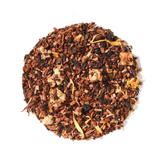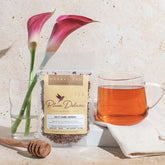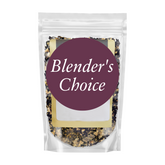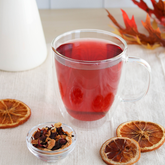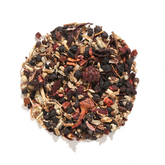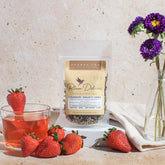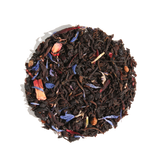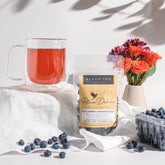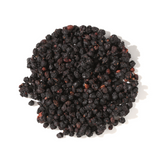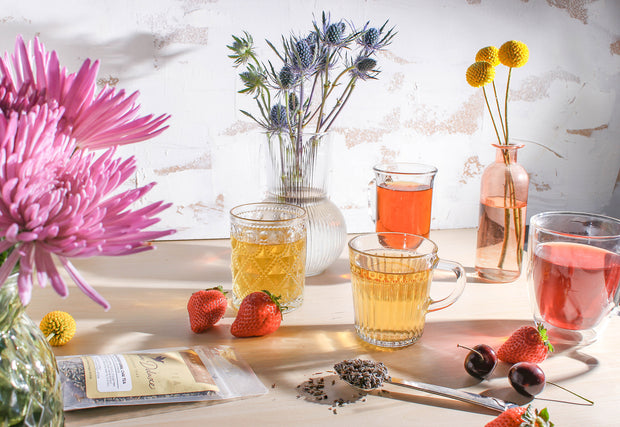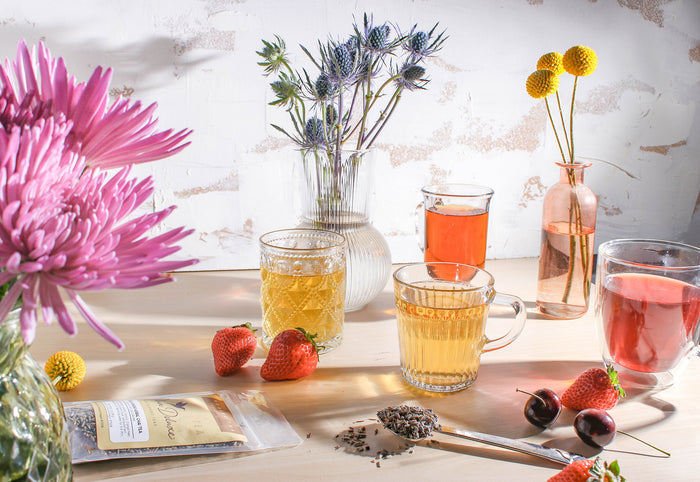With a diagnosis of diabetes comes an overhaul of your diet and a list of things to do and not do, which can be quite overwhelming. This includes giving up any sugary sweet drinks that you’re used to having at hand.
The silver lining is there are still plenty of options to explore that give you flavor and hydration without spiking your blood sugar. Tea is a great choice for diabetics and comes with a list of health benefits for those struggling with blood sugar imbalances. Let’s take a look at the best tea for diabetics.

Is Tea Good for Diabetics?
Tea itself is carb and sugar-free, as it is made directly from the plant Camellia sinensis, making it a great replacement for sugar-filled drinks.
This plant boasts a high antioxidant content which is good for anyone battling health conditions. Tea may specifically help those with diabetes and pre-diabetes. A study of past research showed that drinking three or more cups of tea per day was linked to a lower risk of developing diabetes.
Black tea is full of anti-inflammatory, antioxidant, and blood sugar lowering properties. A study published in 2017 in The Asia Pacific Journal of Clinical Nutrition showed that drinking black tea helped control blood glucose after eating sugar in those without diabetes or who were pre-diabetic.
Of course, whether or not your tea is healthy is all in how you make it. Southern sweet tea made with heaps of sugar certainly wouldn’t be good for those battling insulin issues.
Even artificial sweeteners may raise blood sugar. Plum Deluxe carries an assortment of sweet-tasting teas that don’t include any sugar. Instead, these teas are naturally sweetened with dried fruit, herbs, and essences. For a sweeter black tea, try Sweet Spot Butterscotch tea, a dessert-style tea.

Herbal Tea for Diabetes
Herbal tea, like Caramel Snickerdoodle dessert tea, is another great option for diabetics. Fruit and herbal tea, without the actual tea plant, gives you all of the flavor with none of the caffeine (or added sugar of bottled beverages), making a perfect beverage for later in the day or those with caffeine sensitivity.
Teas with chamomile and valerian root are great for helping you relax and fall asleep. Since just one night of poor sleep can cause your body to produce insulin less effectively, which can raise your blood sugar levels, getting a good night’s rest is incredibly important for your health.
Herbal tea is also very hydrating, and the CDC states that dehydration can also lead to higher blood sugar levels. So, whether you drink it hot or iced, keep the tea flowing!
Chamomile specifically has been shown to help with managing diabetes. A study in Trends in General Practice published in 2018 showed improvement in insulin resistance and inflammatory markers when drinking chamomile tea after each meal.
There are also antioxidant and anti-inflammatory benefits to be had with chamomile. Chamomile is quite soothing to the stress of everyday life, which is certainly exacerbated by a chronic illness. According to the University of California in San Francisco, stress can increase blood glucose levels. Therefore, managing stress with the help of herbs and self-care can help keep your blood sugar in check.
Ginger is a wonderful spice found in herbal tea. A past review shows that ginger supplements lowered fasting blood glucose levels and A1C (a marker of long-term blood sugar control) in those with type two diabetes. Another study published in the Journal of Complementary and Integrative Medicine showed ginger supplementation improved glycemic control.
While both of these studies followed supplements, which are more concentrated and a higher dose than tea, ginger is still a positive herb to work into your tea routine.
Cinnamon is another great spice used in some herbal teas that has been shown to lower blood sugar. It does this by slowing the release of sugar into the bloodstream, enhancing cellular glucose uptake, and promoting insulin sensitivity. Cinnamon seems best used to control fasting blood sugar.
Another spice, turmeric, carries the property of curcumin, which has antioxidant, anti-inflammatory, and blood sugar lowering properties. Studies show that curcumin may lower blood sugar levels by increasing insulin sensitivity and glucose uptake. A study published in 2020 found substantially lowered blood sugar and blood lipid levels when their participants used curcumin.
Curcumin is most beneficial when paired with a pinch of black pepper and some fat, so sprinkle a little in your tea and make it a latte.

Green Tea for Diabetics
Out of all of the choices in tea, you may be wondering what is the best tea for diabetics? The answer, resoundingly, is green tea.
Green tea, made from the same plant as black tea is less processed than black and oolong teas, which means it is less oxidized and leaves more of the beneficial properties.
A review of studies showed that green tea and green tea extract can help lower blood glucose levels, as well as help prevent type two diabetes and obesity, which is a risk factor for type two diabetes. Green tea helps increase the uptake of glucose into muscle cells, which can help prevent getting the disease to begin with.
Another research review of 17 studies showed that green tea reduced fasting blood sugar levels and A1C in people with and without diabetes. Try adding some green tea to your daily routine and see if it benefits you.
With its lower caffeine content, it makes a great pick me up in the afternoon. Plum Deluxe carries a wide selection of flavored green tea for you to choose from when adding it to your diet.
As always, I write as someone who grows and loves herbs. please consult your healthcare professional before adding in any herbal supplements. Some herbs, like St. John’s Wort, do have the ability to interfere with medication.
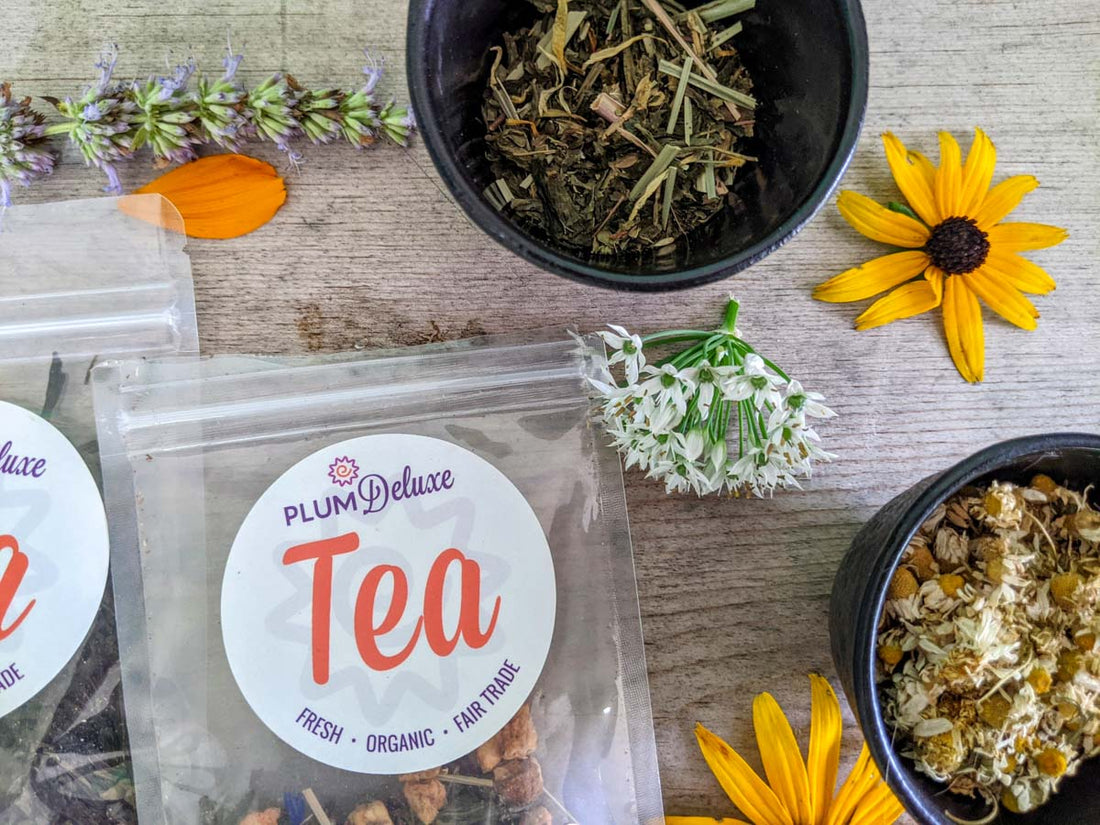
![Spring Break Tea Variety Pack [6-Pack Variety of Flavors]](http://www.plumdeluxe.com/cdn/shop/files/spring-break-pack.jpg?v=1740682266&width=165)

